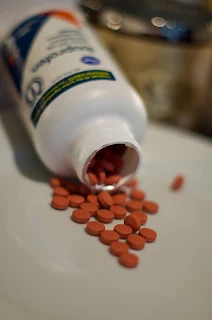Consequences of Missing Prescribed Medications
If a doctor forgets to prescribe or provide you with your medications, it can have various consequences depending on the specific situation and the medication in question. Here are some possible outcomes:
Delayed Treatment: If you require medication for a specific condition or ailment, not receiving it as prescribed can result in a delay in your treatment. This delay may hinder your recovery or management of the condition, potentially causing discomfort or worsening of symptoms.
Increased Health Risks: Certain medications are crucial for managing chronic illnesses or preventing the progression of a disease. If you don't receive these medications as intended, you might be at a higher risk of complications, disease exacerbation, or other health issues.
Missed Benefits: Medications are often prescribed to alleviate symptoms, improve quality of life, or provide specific health benefits. Not taking them as recommended due to a doctor's oversight could mean missing out on the potential advantages or relief the medications offer.
Adverse Effects: Some medications require careful monitoring or specific adjustments to avoid adverse effects. If a doctor forgets to prescribe a necessary medication or dosage adjustment, it could result in unintended side effects or complications.
Patient Inconvenience: Without the prescribed medications, you may need to go through additional steps to rectify the situation. This could involve contacting your doctor to request a prescription, scheduling another appointment, or visiting a pharmacy to obtain the medication. Such inconveniences can be frustrating and time-consuming for the patient.
In case a doctor forgets to provide your medications, it is important to communicate the issue promptly. Reach out to your doctor's office or healthcare provider to inform them about the oversight and ask for guidance on how to proceed. They can work with you to rectify the situation, provide a prescription, or suggest alternative solutions to ensure you receive the necessary medication as soon as possible.






